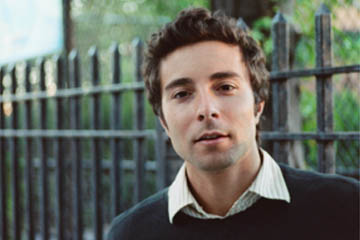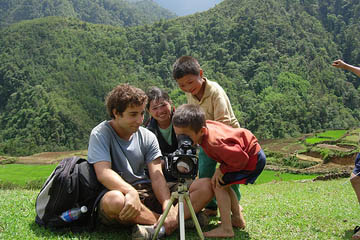The story goes like this: Emmy winning producer Brook Silva-Braga left his cushy gig with the TV network HBO to travel the world with five pounds of clothes and 30 pounds of video equipment.
He left because he wanted to experience the “round-the-world” trip, before life caught up with him and the window of opportunity would be lost forever.

